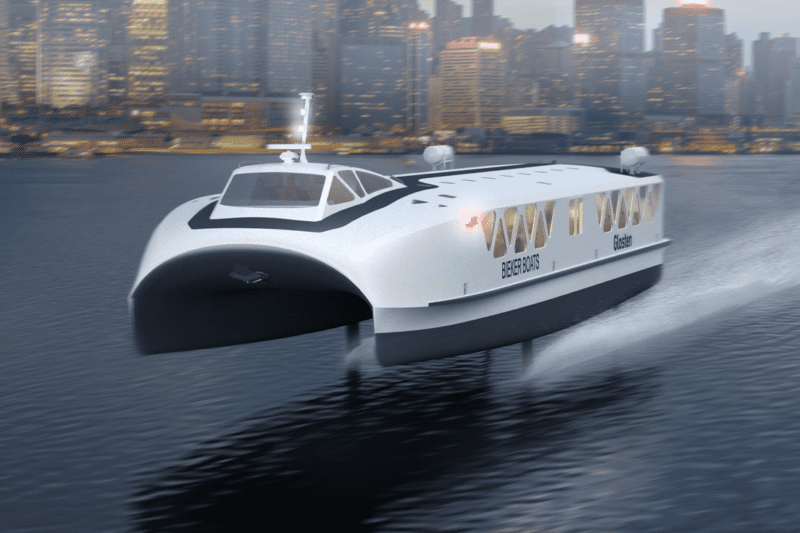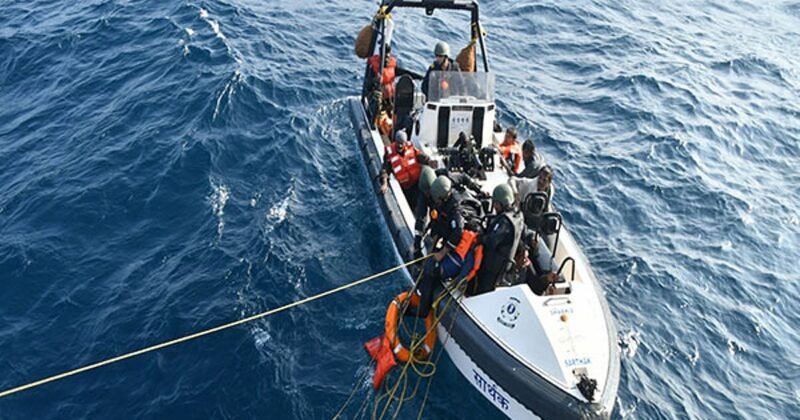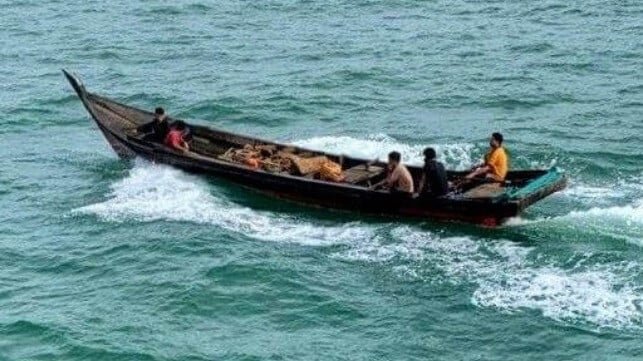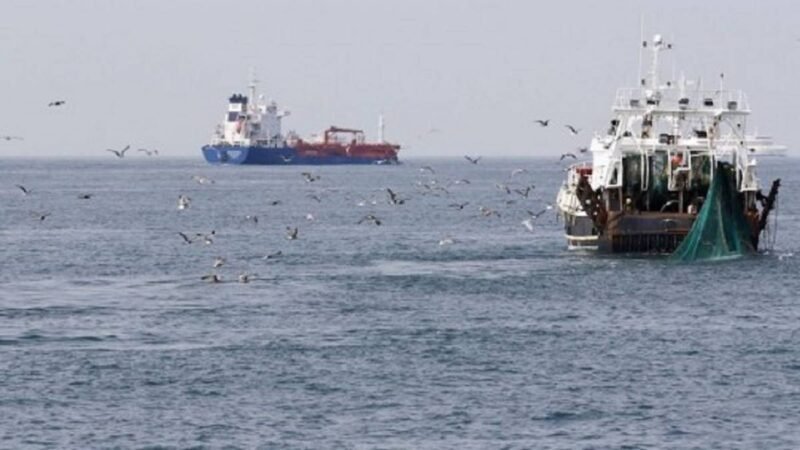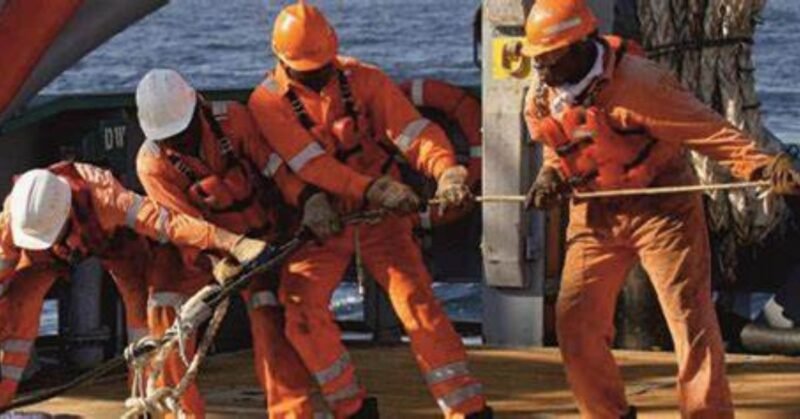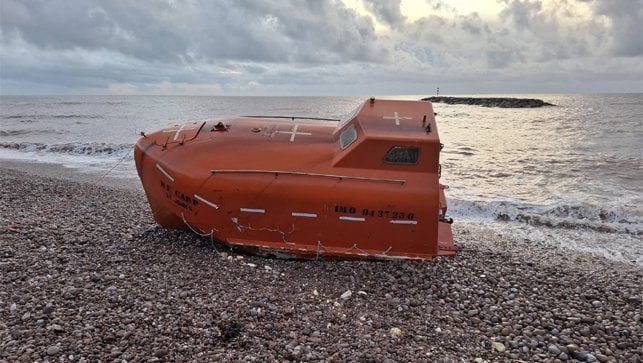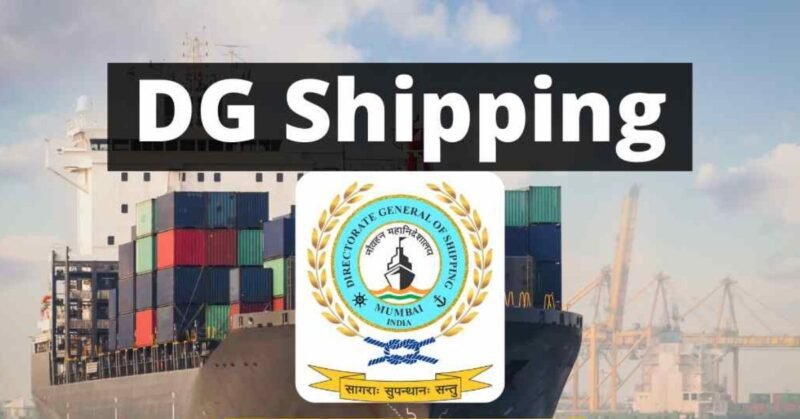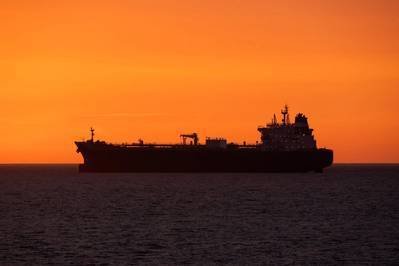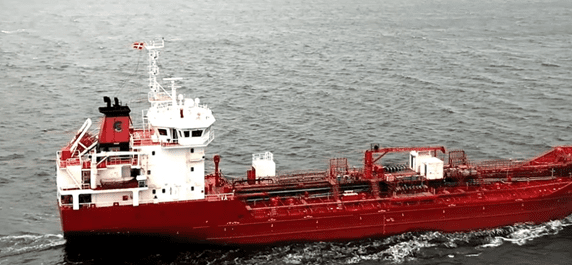Following Stories compiled in this News Digest for the week from 13 Dec 2021 to 19 Dec 2021 in descending order:
- Maritime Blue wins $500,000 for cleaner transportation as finalist in tech challenge
- India: DG Shipping to crack the whip on ships violating safe manning norms
- What’s going wrong with lifeboats?
- Shipping Groups Launch Seafarer Quarantine Network as Omicron Spread Threatens Border Restrictions
- UAE to become an increasingly attractive base for shipping companies
- Decarbonisation requires fresh thinking on safety and sustainability
- A lifeline for crew over the holidays
- USA: Maritime Administration to Resume Sea Year with Mandatory Safety Standards
- India develops blueprint for Maritime Vision 2030
- Marine insurers agree framework to support green shipping
- World’s 1st methanol-powered pilot boat launched
- Crew Reported Kidnapped in New Incident in Gulf of Guinea
- Two drunk seafarers arrested after fatal collision off Sweden
- Is the Global Supply Chain the Next Big Cyber Target?
- Buttigieg Pushes IMO To Address Sexual Assault At Sea
Maritime Blue wins $500,000 for cleaner transportation as finalist in tech challenge
19 Dec 2021
Maritime Blue, a Washington state public-private coalition focusing on environmentally friendly technologies for the maritime industry, has been awarded $500,000 in the first stage of a clean-tech challenge funded by the federal government.

Sixty finalists were selected nationwide to go on to the next stage of the Build Back Better Regional Challenge, backed by the U.S. Department of Commerce’s Economic Development Administration. Maritime Blue is the only Washington state finalist.
Maritime Blue will use its $500,000 award to help integrate Washington state’s blue-economy cluster and commercialize new technologies aimed at decarbonizing heavy-duty transportation and reducing carbon emissions.
In the next phase of the regional challenge, Maritime Blue will prepare a final proposal for submission to the Economic Development Administration by next March. That proposal, and others submitted by the finalists in the challenge, will be considered for up to $100 million in implementation funding.
“This is an incredible achievement for the Maritime Blue team and all coalition members and partners involved in the Build Back Better efforts,” Lisa Brown, director of the Washington State Department of Commerce, said in a news release. “As the consortium led by Maritime Blue moves on to the final phase, we’re proud to see Washington state’s commitment to building a clean energy and Blue Economy future recognized, especially because this shows the potential of our emerging innovation cluster strategy.”
Among the partners in Maritime Blue are businesses including Janicki Industries and First Mode, research institutions including Pacific Northwest National Laboratory and the University of Washington’s Applied Physics Laboratory, and public entities including the Washington State Department of Commerce and the Port of Seattle. Reference
India: DG Shipping to crack the whip on ships violating safe manning norms
18 Dec 2021
The directorate general of shipping (DG Shipping), the country’s maritime regulator, plans to detain Indian ships found violating the minimum safe manning document (MSMD) norms prescribed by the International Maritime Organisation (IMO) and recover the wages saved by the ship owners during the period of such violation.

The master, owner, operator, agent or charterer may also be prosecuted for the infringement, it has proposed.
The move follows information received by the D G Shipping that vessels have been found operating without the requisite manning in violation of the MSMD issued to the vessels.
Safe manning refers to the number of qualified and experienced seafarers necessary for the safety and security of the ship, crew, passengers, cargo and property and for the protection of the marine environment. Accordingly, ships are issued with a Minimum Safe Manning Document (MSMD) under the provisions of the International Convention for the Safety of Life at Sea, 1974.
As a deterrent, Indian vessels found violating the MSMD requirement shall be detained for at least one month.
The DG Shipping said that the violation of statutory requirement should not result in the company benefiting from the violation. “Accordingly, the wages saved during the period of violation of MSMD requirement shall be paid to the government based on the highest scale of the particular grade per the Indian National Shipowners Association (INSA)-the Maritime Union of India (MUI) agreement. In addition, payment of two times amount saved by not employing the seafarers per the MSMD shall also be paid as deterrent against future violation,” the DG Shipping said in a notice seeking stakeholder comments on the issue.
Further, vessels will need to pay ?8,00,000 pertaining to ships found to be operating without safety pollution prevention certificates of DG Shipping for each violation.
“A ship which is not manned as per the MSMD issued to the vessel adversely affects the safety, security, safe navigation, operations at sea/port, prevention of human injury or loss of life, the avoidance of damage to the marine environment and to property, and the welfare and health of seafarers through the avoidance of fatigue,” the DG Shipping said. Reference
What’s going wrong with lifeboats?
18 Dec 2021
Seafarers really shouldn’t be afraid of equipment that is supposed to save them, but this is all too often the case, as news of accidents involving lifeboats filters around the seagoing workforce.
Lifeboat drills, which are mandated by regulation, ought to be routine, but all too often are an ordeal for those taking part and a source of some apprehension. And while it is too easy to blame the seamanship of those involved in accidents, it is not too hard to suggest that there are other factors at play.

There is a lack of any form of standardisation of lifeboat equipment, while many shipbuilders are guilty of sourcing any components on the sole basis of its cost, with the owner not always involved in the specification. Experts who have looked closely at the equipment often discover components that are incorporated into the launching and recovery equipment that have been installed without any apparent comprehension that they will exist in a corrosive atmosphere, or are difficult to maintain.
Then there is plain awful design, with recovery of enclosed boats notoriously difficult after a drill, with crew typically trying to re-attach the suspension links and reset the hook-release gear through a small access hatch at the ends of the boat, while the boat might be moving about in a swell. Free-fall boats are frightening enough to launch, but even more of a nightmare to recover.
“Why are we still producing sub-standard equipment that kills people?”- asks InterManager’s Secretary General Captain Kuba Szymanski, who has been campaigning on this scandal for some years and gathering data on lifeboat accidents. It was the lack of any comprehensive picture into the frequency of these accidents which first drove the ship manager’s organisation to undertake its own research into the problem.
It is a requirement for members of the International Maritime Organization that they report serious accidents to IMO, but this tends to be honoured in the breach. Captain Szymanski suggests that only some 35% of actual accidents are to be found in the IMO database, which leaves 65% unreported. The consequence is that the full measure of a tragedy which has caused death and injury to some 500 people since enclosed boats were widely introduced in the 1980s, fails to properly register.
Most accidents involved enclosed boats or free-fall equipment, with fewer of the older open-boat type. As to when accidents happen, by far the greatest number took place in drills, although a substantial number involved incidents during inspection or survey. Few were found to have occurred during operational use. The data also reveals that one in every five accidents involved the boat and crew falling into the water and one in every 13 took place with the boat stowed. Cruise ships (which use their boats more often) record the most accidents.
These sad, eminently preventable accidents still frighten seafarers, which itself is a scandal that needs to be resolved. Reference
Shipping Groups Launch Seafarer Quarantine Network as Omicron Spread Threatens Border Restrictions
18 Dec 2021
Leading shipping groups representing shipowners, seafarers’ unions, and maritime employers have partnered up to establish their own international network of approved quarantine facilities to help ensure seafarers can safely join ships amid the spread of the Omicron variant.
The move comes as the spread of the new variant threatens unpredictable changes to government border policies, complicating seafarers’ abilities to leave and join ships.

The Crew Enhanced Quarantine International Programme, or #CrewEQUIP for short, was launched between the International Maritime Employers’ Council (IMEC), the International Chamber of Shipping (ICS), and the International Transport Workers’ Federation (ITF), which collectively represent more than 80 percent of the global merchant fleet and almost 1 million international seafarers through almost 200 affiliated unions.
The program will create a list of trusted hotels available for crew quarantines that are independently reviewed. The program is designed to overcome frequent changes in government border policies affecting international crew by having the highest standards and industry-best protocols in place, ensuring crew members can safely get to vessels even if governments increase quarantine requirements.
The groups said the program is urgently needed to avoid the shipping industry returning to the worst extremes of the crew change crisis, which at its peak saw in late 2020 had 400,000 seafarers trapped working aboard vessels beyond their initial contracts, with an equivalent number unable to join vessels and earn income.
While a global, permanent system with digital vaccine and testing recognition is still urgently needed, the groups said #CrewEQUIP would be important to have in place in the meantime to support greater levels of crew change. The groups also welcomed the announcement this week of a new joint WHO-ILO-industry action group to advance digital ‘yellow cards’ for seafarers and other workers who need to cross borders for their jobs.
Under the #CrewEQUIP scheme, shipping companies and their representatives such as crewing agents and vessel managers are able to sponsor pre-embarkation quarantine facilities for seafarers to be considered for recognition. Facilities must meet #CrewEQUIP’s stringent standards for hygiene, testing integrity and data security.
A facility must also pass inspections by Lloyd’s Register, the program’s recognized external auditor, to become and remain recognized #CrewEQUIP providers.
“Seafarers have been, and continue to be, severely disrupted by the Covid-19 pandemic,” said Captain Belal Ahmed, Chairman of International Maritime Employers Council (IMEC). “While the world has repeatedly gone into lockdown, seafarers have worked tirelessly to keep international trade continuously moving and ultimately to ensure that the world’s population are kept nourished and warm. Yet, despite the important work seafarers undertake, many governments have made the movement of these key workers on and off ships far from easy.”
Starting today, shipowners, shipping companies and their representatives will be able to access the online booking portal to nominate pre-embarkation quarantine facilities at crewequip.org. Reference
UAE to become an increasingly attractive base for shipping companies
18 Dec 2021
A series of new regulations and a more business-friendly environment in the UAE is likely to provide a pull for shipping companies looking to set up or expand within the region.

This was one of the main conclusions of panellists at a Seatrade Maritime Middle East session addressing ‘Better compliance – less cost’ earlier this week. The session was moderated by Ali Shebab, DNV’s Global Director of Special Projects and Services with focus on the Middle East.
Setting the scene, Laura Voda, a lawyer at Fichte & Co, revealed that within the last two months, a new Commercial Companies Law, an amended Commercial Code, new data legislation, and the New Labour Law have been prepared and will all become effective early in 2022.
“We welcome these developments,” she said, adding that the changes will contribute to making the UAE an incentivised business environment likely to generate an influx of business from all over the world.
The new legislation will make the country’s existing employment law much more flexible, she said, enabling part-time working, freelancing, tele-commuting, and job-sharing. She declared that the firm was looking forward to providing insight and guidelines on dealing with the changes, streamlining businesses, and building sustainable and profitable shipping entities within the country. Reference
Decarbonisation requires fresh thinking on safety and sustainability
17 Dec 2021
Shipping’s decarbonisation journey must involve sustainability and safety issues in equal measure, panellists at a round table discussion hosted by Lloyd’s List and sponsored by DNV unanimously agreed.
The coming decade is likely to see a transformation in the way the industry is structured and operates, such that successful companies will embrace transparency and will proactively collaborate with like-minded businesses within the supply chain and external to it.

Further, panellists agreed on the requirement for best practice, covering both successes and failures, to be shared widely to enable both larger and smaller companies to reach sustainable goals.
For understandable reasons, shipping has taken an increasingly firmer line on sustainability issues over the past decade, with the COP26 gathering in Glasgow underlining the need for the industry to accelerate towards zero-carbon transportation.
The impact this has made on attitudes to safety — even though it can’t be easily measured — appears to be negative. Panellists were concerned that safety is playing second fiddle to sustainability.
Shipping needs to “up its game” in terms of the safety aspects of decarbonisation, one speaker urged. Others insisted that safety and sustainability were two sides of the same coin, and that compromising on safety would mean compromising on the issue of decarbonisation itself.
One panellist illustrated the point metaphorically: “Regarding alternative fuel, safety should form the base of the pizza, with toppings of sustainability, technology, and cost. If the base of safety isn’t in place, we will have to compromise.”
The pace of progress on the journey to decarbonisation will be too fast for most companies to tackle individually, which means sharing experiences – good and bad – will become paramount. This will require openness and honesty in reporting failures, on the one hand, and an acceptance that growth is often grounded on making mistakes.
Speakers also agreed that first movers would play a critical role in dragging the industry beyond its safe space to the realms of the ‘unknown knowns’, where vessel operators seek to collaborate with others that have already tried and tested a fuel or a new technology.
These first movers will be “well looked after, and they will probably be very good at it,” it was suggested. The greater concern will come “when the bulk of the vessels come into the market and move into these new fuels.”
“The coming decade will be transformational and inspiring,” Mr Ørbeck-Nilssen concluded, “but it will not be straightforward and it will not be easy.” Success will involve safety and sustainability with equal weight. Reference
A lifeline for crew over the holidays
17 Dec 2021
This time of year can be tough and lonely for seafarers spending the holidays at sea away from loved ones. For those at home unable to work due to the COVID-19 pandemic, financial pressures and other worries are ever present.

ISWAN is spreading the word that support is available to seafarers at a time of year when many businesses and industries usually close. Any seafarer who needs someone to talk to can call or send a message to ISWAN’s SeafarerHelp at any time, and professional yacht crew can contact ISWAN’s Yacht Crew Help. Both helplines are available 24 hours a day, 365 days a year, so someone will always be at the end of the phone or online on Live Chat to offer a listening ear.
From April 2020 to March 2021, our helpline team handled more than 20,000 calls and messages. During this period, ISWAN’s helplines received double the usual number of calls and messages related to suicides or suicidal thoughts. Seafarers have faced countless mental health challenges resulting from the effects of the COVID-19 pandemic. Both SeafarerHelp and Yacht Crew Help are available for any crew member, whether they are experiencing a mental health crisis or feeling low or lonely during the holiday period.
Simon Grainge, ISWAN’s Chief Executive Officer, said:
‘A third of the world’s population will be celebrating Christmas and, whether they realise it or not, will have been totally reliant on seafarers to make it possible. But for many seafarers and their families, there will be no rest because the supply chain never stops. ISWAN’s SeafarerHelp and Yacht Crew Help services will be there throughout to support them; it’s the least we can do.’
Seafarers can make sure they have a direct line to ISWAN’s helpline team and offline access to guidance by downloading the free ISWAN for Seafarers app, which is available via the App Store and Google Play. Launched earlier this year, the app has so far been downloaded by over 2,200 seafarers worldwide. For more details and reference, please click here
USA: Maritime Administration to Resume Sea Year with Mandatory Safety Standards
17 Dec 2021
The U.S. Department of Transportation (DOT) and the Maritime Administration (MARAD) released new safety standards to govern the U.S. Merchant Marine Academy’s (USMMA) Sea Year. The six State Maritime Academies have confirmed their support for these standards. In addition, new policies and procedures will be implemented at USMMA to support cadets while they are at sea.
With implementation of these standards and policies, USMMA anticipates lifting the current pause on Sea Year on December 22.

USMMA’s Sea Year training program, which typically consists of a sailing period during a cadet’s sophomore year and a longer sailing period during a cadet’s junior year, was paused temporarily in early November to ensure the development and implementation of measures to help prevent sexual assault and sexual harassment (SASH), and foster a safer, more welcoming and inclusive culture. Sea Year training enables cadets to obtain the training days at sea necessary to become eligible for a U.S. Coast Guard merchant officer license examination.
“The plan we are launching today represents the collective commitment of DOT, MARAD, USMMA, and the six State Maritime Academies to strengthen safety for cadets aboard commercial vessels, and to support an inclusive culture that prioritizes preventing sexual assault and harassment and supporting survivors,” said Acting Maritime Administrator Lucinda Lessley. “The plan is an initial step, and all parties are committed to continuing to review this program frequently, and to make improvements whenever needed to ensure the safety and success of cadets.”
Two documents were released today:
• The Every Mariner Builds a Respectful Culture (EMBARC) program, administered by MARAD, which enumerates more than 30 new safety measures that commercial carriers will be required to meet before they can be enrolled in the EMBARC program and approved to carry cadets. The EMBARC program also sets forth a process and protocols for ensuring continuous review and improvement.
• The second document enumerates new policies and procedures that will be implemented at USMMA to support implementation of the EMBARC program and to increase the support provided to cadets while they are at sea. Among other new policies and procedures, USMMA will provide additional pre-Sea Year training and a satellite phone that enables cadets to have voice communication with family and friends as well as Academy personnel and other support resources while embarked at sea. USMMA has also recently implemented a new amnesty policy that ensures that survivors who report sexual assault, as well as intervening bystanders and witnesses, will not be subject to discipline for a violation of the alcohol or drug use policy occurring at or near the time of the commission of the assault.
“We fully support the Sexual Assault and Sexual Harassment (SASH) Prevention Mandatory Minimum Standards articulated in the Every Mariner Builds a Respectful Culture (EMBARC standards) for U.S. flag Safety of Life at Sea (SOLAS) vessels engaged in international trade,” stated RADM Bill Brennan, chairman of the Consortium of State Maritime Academies. “We believe these standards will help ensure a safe and healthy work environment for our cadets onboard these vessels.” Reference
India develops blueprint for Maritime Vision 2030
16 Dec 2021
The Ministry of Ports, Shipping and Waterways has prepared a blueprint – Maritime India Vision 2030 (MIV 2030), to ensure coordinated and accelerated growth of India’s maritime sector in the next decade with the objective of driving India to the forefront of the Global Maritime Sector.

Union Minister for Ports, Shipping, Waterways and Ayush Sarbananda Sonowal has said in a virtual CII Partnership Summit 2021 in New Delhi today, that India is aiming to increase the supply chain efficiency and lower logistics costs which will facilitate India to achieve its well-defined goal of being a USD 5 trillion economy by 2025.
He said, India has one of the largest supply chain and logistics sectors in the world growing at a fast pace, as per the press release. An efficient logistics ecosystem is thought to be a catalyst for improving the competitiveness of all sectors of the economy.
He said, MIV 2030 has identified initiatives such as developing world-class Mega Ports, trans-shipment hubs and infrastructure modernization of ports. These initiatives would help in lowering overall operational costs of ports, reducing turnaround time for vessels, increasing efficiency and throughput, providing ability to handle larger ships and developing Indian Port’s strategic importance in the South Asian region.
To promote inland water transport in the country as an economical, environment friendly supplementary mode of transport to rail and road, 111 inland waterways (including 5 National Waterways declared earlier) were declared as ‘National Waterways’ under the National Waterways Act, 2016.
Union Minister Sonowal added that MIV 2030 envisions an overall investment of INR 3 to 3.5 lakh crore across ports, shipping, and inland waterways categories. Reference
Marine insurers agree framework to support green shipping
Six marine insurers have launched an initiative to provide transparency on carbon emissions and support the shipping industry’s green transition.
The six marine insurers, Swiss Re, Gard, Hellenic Hull Management, SCOR, Victor International, and Norwegian Hull Club, have established a framework that will help them engage with the shipping industry and support net-zero insurance.

As explained, the Poseidon Principles for Marine Insurance framework will quantitively assess and disclose the climate alignment of marine insurers’ underwriting portfolios.
This pioneering initiative makes marine insurance the first line of business to establish a sector-specific methodology to support the ambition of the Net-Zero Insurance Alliance (NZIA), where members commit to transitioning their underwriting portfolios to net-zero GHG emissions by 2050, consistent with a maximum temperature rise of 1.5°C above pre-industrial levels by 2100, in order to contribute to the implementation of the COP21 Paris Agreement.
Signatories to the Poseidon Principles for Marine Insurance commit to assessing and disclosing the climate alignment of their hull and machinery portfolios, and to benchmarking them against two trajectories: one linked to a 50% reduction of annual CO2 emissions by 2050 compared to 2008 – in line with the International Maritime Organization’s Initial GHG Strategy; and one linked to a 100% reduction of emissions by 2050.
Furthermore, a third trajectory will be introduced to align the full decarbonization trajectory with zero-lifecycle GHG emissions in order to meet the ambition of net-zero commitments such as the NZIA, and to support a zero-emissions future for shipping.
“We need to work together to tackle the challenge of climate change. As such, the Poseidon Principles for Marine Insurance are an important contribution from the marine hull insurance industry. The principles provide us with a common tool to monitor progress over time,” Rolf Thore Roppestad, Chief Executive Officer of Gard, and Vice-Chair of the drafting committee, said.
“We will work together with our Members and clients to make sure that the principles and the methodologies applied are as practical and straightforward as possible. Our common goal is an accelerated move towards a decarbonized industry.”
Brokers, clubs, and other key stakeholders in marine insurance commit to supporting the Principles as affiliate members and align with the goal of decarbonizing international shipping by 2050. Reference
World’s 1st methanol-powered pilot boat launched
15 Dec 2021
The world’s first methanol propelled pilot boat has been launched by the Fastwater project, a consortium of Europe’s maritime research and technology leaders set to demonstrate the feasibility of retrofit and newbuild vessels to operate on methanol.

Launched ahead of schedule, one of the Swedish Maritime Administration’s (SMA) pilot boats was converted to run on methanol. This 14.4-metre long and 4.6-metre wide pilot boat 120 SE operates on a single methanol-fueled engine.
It features a fixed propeller and the compression ignited Methanol-MD97 engine which has diesel-like performance. The engine’s power goes up to 415 kW at 2,100 rpm.
Developed by Swedish shipping services provider ScandiNAOS, the MD97 engine fulfils IMO Tier III requirements without aftertreatments and is expected to reduce NOx by 75%.
Said to be super-efficient in terms of low fuel consumption, the pilot boat and engine are designed in cooperation with Lloyd’s Register.
As described, the new methanol powered engine was installed in a normal engine room. Double-walled fuel pipes and double-skinned tank were also installed as well as leakage and heat detectors. Reference
Crew Reported Kidnapped in New Incident in Gulf of Guinea
15 Dec 2021
After a seeming lull in attacks of merchant ships in the Gulf of Guinea with the increased international presence in the region, a new attack with a kidnapping was reported today in the same vicinity of other attacks in the region off Equatorial Guinea. Alerts have gone out for the potential of further piracy activity in the region.
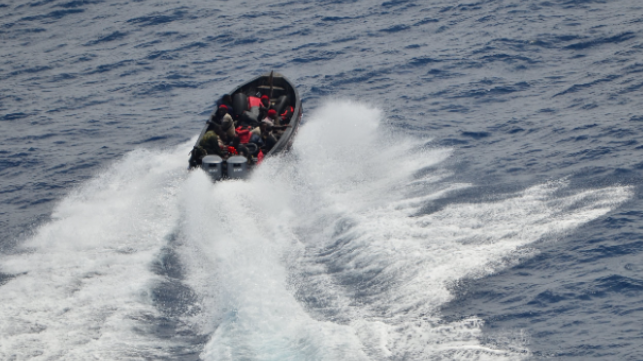
While the details remain scarce at this moment, security consultants Dryad International is reporting that it believed six crew members have been abducted in an incident in the same place where another vessel was involved in another kidnapping incident in late October. The monitoring operation MDAT-GoG first reported a suspicious approach after midnight saying that a skiff was spotted with 12 individuals aboard. This was happening in the anchorage area near the port of Owendo in Gabon. This prompted MDAT-GoG to issue a warning for “an increased high risk of piracy activity for the next 24 to 48 hours.”
Dryad reported that six crew members were abducted although some set the number as high as nine crew from a containership in the same area that the OSV Montet Tide was the target of an assault on October 25. The offshore supply vessel managed by Tidewater was boarded and three crew members were reported taken in the previous incident that took place hours before pirates attempted an incident with an MSC containership. The Russian Navy took credit for chasing away the boarders on the MSC Lucia before they could abduct any crew members and then together the vessel were seen proceeding to the site of the Monet Tide.
The incident happened about 35 nautical miles away from the October reports, MDAT-GoG reported that the vessel had been boarded but was secured. They also said that Gabon has dispatched forces to the area. In later reporting, the Danish frigate operating in the area said that it had sent its helicopter to the area and spotted the skiff but was unable to stop it after it entered territorial waters apparently heading toward the Niger Delta region. The Danes boarded the containership providing assistance including searching for unaccounted for crew members leading to the current confusion on the exact number kidnapped. The Danish frigate is also providing medical care for one crew member from the containership that was wounded in the confrontation with the pirates. Reference
Two drunk seafarers arrested after fatal collision off Sweden
15 Dec 2021
Two crew members of the UK-flagged cargo vessel Scot Carrier have been arrested after they were found to be over the legal limit for alcohol at the time of a collision with the Danish cargo ship Karin Høj in the Baltic Sea that killed at least one seafarer.

The Swedish Prosecution Authority is investigating several suspected crimes, including drunkenness at sea, negligence in maritime traffic and causing death through negligence. A 30-year-old British citizen is suspected of all three charges, while a 56-year-old Croatian citizen is being held under suspicion of ‘gross sea drunkenness’.
The 4,800 dwt Scot Carrier, owned by UK-based Scotline, was en route from Latvia to Scotland when it smashed into 492 dwt Karin Høj off the Swedish coast and the Danish island of Bornholm at around 3.30 hrs local time on Monday. The latter capsized almost immediately with two crewmembers on board, of which one has been found dead aboard the ship, while the other remains missing and presumed dead.
Scotline confirmed on Monday that two of the crewmembers had failed a drug and alcohol test. Reference
Is the Global Supply Chain the Next Big Cyber Target?
14 Dec 2021
“Cyberwarfare is the greatest threat to the maritime transportation system,” warns U.S. Coast Guard Rear Admiral John Mauger, Assistant Commandant for Prevention Policy. “The safe flow of global commerce relies on the seamless movement of information, and cybersecurity threatens that.”

After two years of stress, ports are congested, labor is scarce, and the International Chamber of Shipping warns of a global transportation system collapse – all while China’s Xi Jinping asks his military to “make preparations for war.”
Cyber attackers are wielding political and economic warfare through ransomware, intelligence gathering and technological theft. In a highly digitized and networked “smart” society, cyber risks threaten energy grids, water treatment, governments, defense infrastructure and medical services as well as transportation, financial, electoral and corporate information technology (IT) systems.
Over the past three years, Maersk, Mediterranean Shipping Company (MSC), COSCO, and CMA CGM have all been victims of cybersecurity. So what can maritime executives do?
Rear Admiral Mauger discusses his command’s efforts in securing the U.S. maritime transportation system: “Valued at $5.4 trillion and employing 30 million (1 in 12) Americans, this is a key economic and strategic issue. Cybersecurity is a risk just like many other operational functions. The key difference is managing. There must be accountability. Organizations must conduct a thorough assessment, understand the threats, identify gaps, then plan how to close and mitigate them.”
To this end the USCG maintains a blog called “Maritime Commons.” It’s established Information Sharing and Analysis Centers and increased grant monies through local Area Maritime Security Committees. Mauger says the industry needs to form standards for a cyber response organization like those created from the Oil Pollution Act of 1990 (OPA-90), following the Exxon Valdez oil spill.
“Attack vectors from the energy and infrastructure sectors have now penetrated maritime,” says Ian Bramson, Global Head of Industrial Cybersecurity for ABS. Cyberattacks against Colonial Pipeline, JBS Foods and water authorities should be warning bells for the industry. Right now they’re dinner bells for the bad guys. Advances in digitalization and autonomy have made networks more susceptible.
“Owner/operators need to inventory what systems are digital that weren’t ten years ago,” Bramson notes, “and ask themselves what risks they now pose.”
ABS’s Cyber Squared concept provides an industry cybersecurity rating (like Moody’s) with broad stakeholder involvement that includes risk analysis and research. Bramson emphasizes the need for higher levels of training for management, cultural change and enforcement of company policies to ensure companies go beyond bare compliance and achieve meaningful security.
How do you do this? By applying training (behavioral change), segmentation of networked systems and supply chain vetting, particularly the design security for newbuild requirements. Managers need to ask vendors questions related to cyber-acceptance testing for components. While onboard, they need to perform vulnerability assessments (risk rating) and configuration management (valve or perimeter changes) and monitor abnormality detection.
“Data is the new oil,” states Max Bobys, Vice President of New Jersey-based HudsonCyber. “There’s a huge underground market for raw data, and it’s become a regional and national security issue.”
Bobys cites how hackers and organized crime have accessed the Port of Antwerp to facilitate the illegal smuggling of drugs, weapons and humans into the E.U.: “It’s a regional security concern with organized crime and syndicates representing a huge threat vector for the global maritime industry.”
Other common threat vectors include people making honest mistakes. To make a difference, you must become “cyber aware,” Bobys says. “Build out posture and resilience. Investments in training will yield the highest return. Train people to challenge email attachments, social media, abandoned thumb drives, or a stranger sitting outside in a car with a laptop (who may be hacking the Wi-Fi network).”
“If you see something, say something,” urges Bobys.
The objective is, “Protect, detect, respond, mitigate, then recover.” Bobys references the Cybersecurity Guide for Ports and Port Facilities by the International Association of Ports and Harbors (IAPH) for additional resources.
When performing risk analysis, identifying potential hazards and their negative impact on operations are ranked according to their probability and severity. Unfortunately, in this instance, the probability and severity rank high. To survive, companies must mitigate. We aren’t necessarily saying the sky is falling, but communications could soon be disru…. < transmission terminated > Reference
Buttigieg Pushes IMO To Address Sexual Assault At Sea
13 Dec 2021
Monday, December 6, the U.S. Transportation Secretary Pete Buttigieg addressed the assembly of the International Maritime Organization, IMO, in London. He focused on three major points; climate change, supply chain disruption and sexual assault in the maritime industry. This marks the first time a major government figure has gone on record with the IMO to address sexual assault aboard ships.
“I want to emphasize one area where the need for action is particularly urgent, “said Buttigieg. “For too long, sexual assault and sexual harassment in maritime shipping has been an open secret, affecting the industry around the world. Reference
Note: All above news items compiled in this digest should be considered as news in brief. For detailed news, please refer to reference link, mentioned with each item.
Share it now

